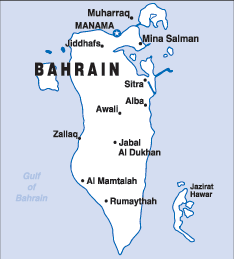Gulf states accuse Iran of "aggressive" behavior in islands row
 Manama, Bahrain - The Gulf Cooperation Council (GCC) on Tuesday accused Iran of "unfriendly and aggressive" behaviour towards the Gulf states, in a row over three disputed islands.
Manama, Bahrain - The Gulf Cooperation Council (GCC) on Tuesday accused Iran of "unfriendly and aggressive" behaviour towards the Gulf states, in a row over three disputed islands.
The row centres on the three islands of Greater Tunb, Lesser Tunb, and Abu Musa, in the southern Gulf, which have been under Iranian control since 1992, but are also claimed by the United Arab Emirates (UAE).
The Secretary General of the GCC, Abdulrahman al-Atiyah, made the comments in Bahrain after Iran's Interior Minister, Sadiq Mahsouli, reaffirmed Tehran's right to the islands.
"Despite the positive position of the GCC toward Iran, that position is met many times by Iranian officials through a stance that swings unjustifiably between unfriendly and aggressive," al Atiyah told the opening session of the second Bahrain Security Forum and Exhibition.
Al-Atiyah also cited repeated statements by Iranian officials threatening the safety and security of the Gulf states in the case of an attack on Iran by the United States.
That is despite the Gulf states' assurances that they oppose the use of force to resolve Iran's nuclear program dispute, he said, but it reflects a tendency by some in Iran to "provoke" the Gulf states.
"The sovereignty and security of any of the GCC countries represents a red-line and the consequences of these threats would encompass all of them," Al Atiyah warned.
He said that by "occupying" the islands, Iran was acting "in contradiction to the values of Islamic brotherhood, good neighbours, and international law."
Mahsouli responded that "the islands of Greater Tunb, Lesser Tunb, and Abu Musa are Iranian and any misunderstanding can be resolved through bilateral talks, particularly since Iran and UAE have good relationship."
He also reiterated the Iranian position that calls for the withdrawal of all foreign troops from the Gulf and establishing a regional security network.
"The American experience in Iraq and Afghanistan proved that the continued presence of foreign forces or occupation is a major cause of insecurity and instability," he said. (dpa)